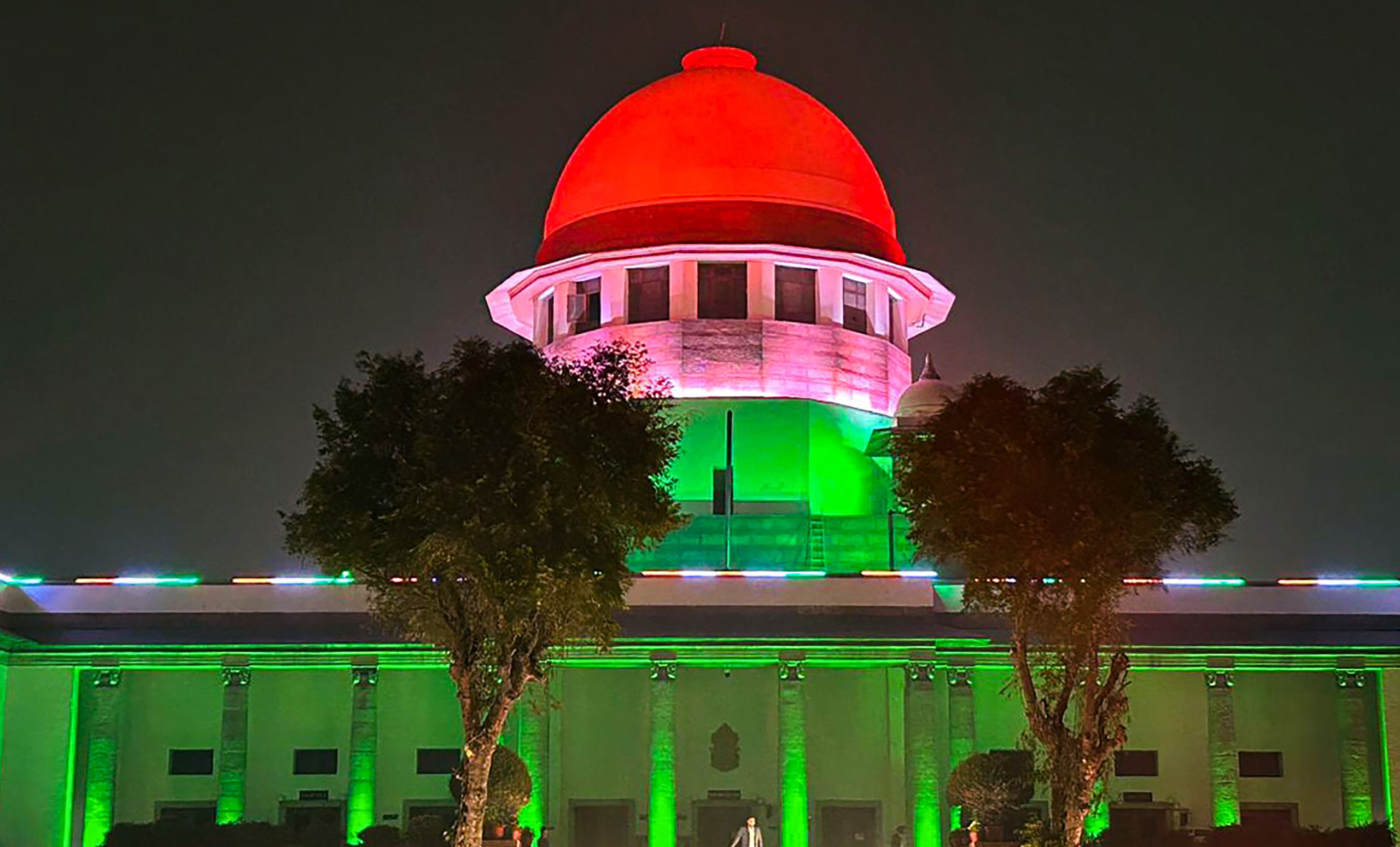New Delhi, Feb 27: The Supreme Court affirmed the constitutional validity concerning the authority to arrest under the revised customs laws and the central goods and services tax (GST) on Thursday.
A panel comprising Chief Justice Sanjiv Khanna and Justices M M Sundresh and Bela M Trivedi stated that in suitable circumstances, requests for pre-arrest bail could be entertained, clarifying that such applications need not be submitted solely after an FIR is lodged, provided there are clear facts and a reasonable basis for fearing arrest.
Approximately 280 petitions, including one from lead petitioner Radhika Agarwal in 2018, contested the compatibility of the Customs Act and the GST Act with the CrPC and the Constitution, arguing that these laws were “non-compatible.”
In a 63-page judgment drafted for himself and Justice Sundresh, the CJI concluded, “The challenge to the constitutional validity and the right of authorized officers under the Customs Act and the GST Act to arrest is rejected and dismissed, along with clarifications regarding the pre-conditions and the manner in which the arrest powers should be exercised.”
Justice Bela Trivedi aligned with the CJI’s opinion and provided a 13-page statement.
Regarding the power to grant anticipatory bail, the CJI emphasized that it emerges in cases where there is a fear of arrest.
“This authority, granted to the courts under the code, upholds the right to life and liberty as stated in Article 21 of the Constitution, protecting individuals from unwarranted arrests. In appropriate situations, requests for anticipatory bail can be accepted, which may also carry conditions,” the ruling indicated.
Consequently, the court dismissed the challenges to Sections 69 and 70 of the GST Act and Section 104 of the Customs Act, affirming the legislature’s authority to impose criminality for tax violations and to authorize arrests.
The bench referenced certain precedents, noting that while customs officers are not classified as police officers, they possess the statutory powers to investigate and apprehend offenders under the respective laws.
The scrutiny revolved around the constitutionality of the amended provisions of the Customs Act and the GST Act following the 2011 ruling in the case of Om Prakash v. Union of India.
The previous 2011 decision declared that offenses under the Customs Act and Central Excise Act, 1944 were non-cognizable, meaning officers with arrest authority could do so only after securing a warrant from a magistrate under the CrPC.
Subsequently, amendments were introduced to Section 104 of the Customs Act, categorizing certain offenses as cognizable and empowering officers to perform arrests in specific instances.
“The modifications made to the Customs Act in 2012, 2013, and 2019 are substantial and were enacted to effectively adjust the application of Om Prakash, which required customs officials to obtain a magistrate’s prior approval before effectuating an arrest,” the Supreme Court articulated.
The CJI stated that the amendments classified specific offenses as cognizable and non-bailable, imposing particular preconditions and stipulations for making arrests.
The CJI remarked that reliance on Om Prakash by the petitioners was now invalid and should be dismissed.
However, the ruling underscored the importance of reviewing the preconditions and protections instituted by the legislature to safeguard the life and liberty of those being arrested.
“If a customs officer, authorized through a general or special order by the principal commissioner of customs or commissioner of customs, has grounds to believe that a person has committed an offense punishable under Section 132, Section 133, Section 135, Section 135-A, or Section 136, that officer may arrest the individual and must, as soon as feasible, inform them of the reasons for the arrest,” the verdict indicated.
Additionally, the court affirmed that an individual arrested by a customs officer has the right to consult a legal representative of their choice during interrogation, though not throughout the entire process.
“We reject the challenges to the amendments as well as the provisions of the Customs Act. The arguments presented by the petitioners referencing the Om Prakash decision are misguided, and the statutory provisions have been amended to align them with the existing law. In addition, the provisions include adequate safeguards against arbitrary or wrongful arrests,” the ruling stated.
In the 2017 GST Act, the government conferred the authority to arrest in specific circumstances.
In regard to challenges brought against the GST Act’s provisions concerning arrest and summons, the bench did not accept the argument that the Centre lacked “legislative competence.”
It was contended that while Article 246A of the Constitution grants legislative powers to Parliament and state legislatures to levy and collect GST, it does not explicitly permit the criminalization of violations.
The bench disagreed, stating, “Article 246A of the Constitution stands as a unique provision outlining the source of power and the legislative field for GST concerning both Parliament and state legislature.”
The ruling added, “Under Article 246A of the Constitution, Parliament possesses the authority to create laws concerning GST and, as an essential corollary, to establish provisions to combat tax evasion. Article 246A is an all-encompassing provision to which the doctrine of pith and substance applies.”
According to the ruling, implementing a penalty or prosecution mechanism for the collection and management of GST, as well as for its evasion, is a legitimate exercise of legislative power.
The bench concluded that the powers to summon, arrest, and prosecute are ancillary and consequential to the capacity to levy and collect goods and services tax. (Agencies)


Leave a Reply